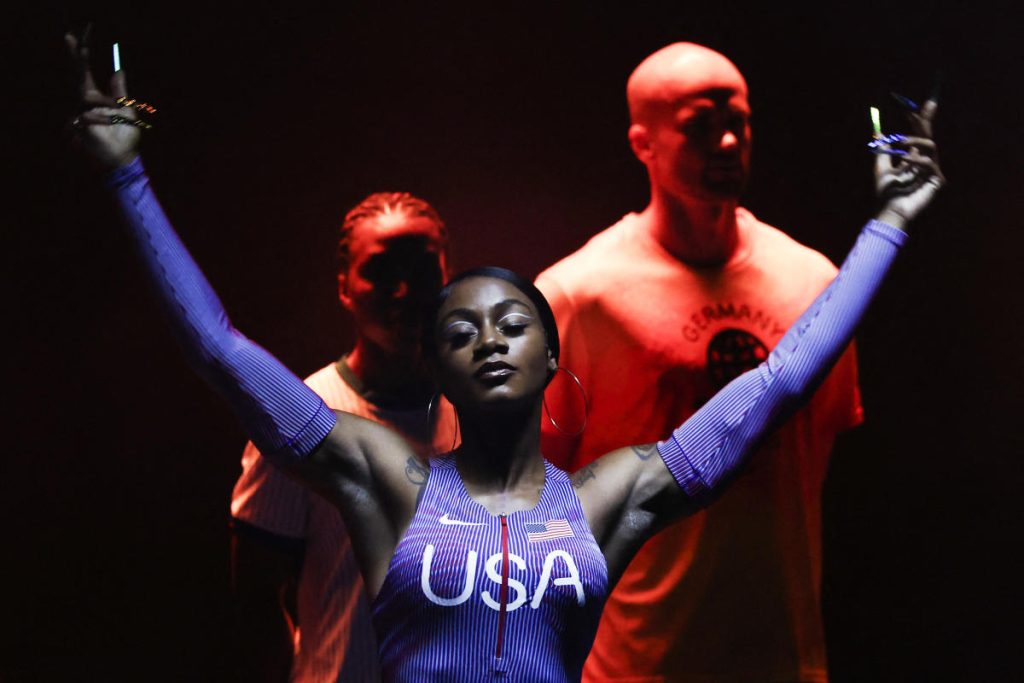Nike recently shared a preview of the track and field uniforms for the 2024 Paris Olympics, sparking backlash due to the design of the women’s bodysuit. The high-cut unitard reminiscent of a 1980s workout leotard has drawn criticism from social media users and former Olympic athletes. Options for female athletes also include compression shorts with a tank top and bikini bottoms. Further uniform options are set to be revealed at the U.S. Olympic Committee media summit in New York on April 15.
The controversy surrounding Team USA’s uniforms was ignited by a “first look” photo shared by Citius Mag on social media. Athletes and fans alike expressed concern over the revealing nature of the women’s bodysuit, with some joking that the European Wax Center should sponsor the team due to the high cut. Former athletes and current Olympians shared their thoughts on social media, highlighting the discomfort and impracticality of the uniforms for female athletes. Some critics believe that the design perpetuates patriarchal norms and objectification of women in sports.
Lauren Fleshman, a former professional track and field athlete, addressed the uniform controversy on Instagram, criticizing the design as a “costume born of patriarchal forces.” She emphasized the importance of creating sporting environments that respect and encourage the natural development of female bodies. Other athletes, such as pole vaulter Katie Moon, defended the unitard, stating that they did not feel worried about any wardrobe malfunctions. Despite differing opinions, the new Team USA uniforms have contributed to a larger conversation about women’s sports, attire, and the treatment of female athletes in the industry.
The unveiling of Team USA’s uniforms comes at a time when women athletes are advocating for proper attire, challenging sexist uniform rules, and raising awareness about period anxiety in sports. The trend of setting boundaries and reclaiming agency over their bodies is gaining momentum among female athletes, who are speaking out against dress codes and expectations that prioritize appearance over performance. The growing movement of women athletes demanding respect and inclusivity in sports is reflected in the criticism and discussion surrounding the design of the track and field uniforms for the upcoming Olympics. Nike, the designer of the controversial uniforms, has not yet issued a statement in response to the backlash.


